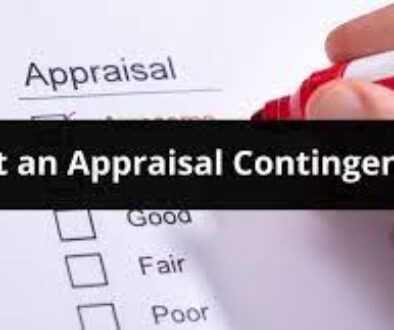Buyer’s Agent
What Is A Buyer’s Agent?
A buyer’s agent is a licensed real estate professional who represents the buyer during the home buying process. Buyer’s agents are legally obligated to protect the best interests of their client, so they should exhaust every effort to find homes for you to view, submit offers to listing agents and negotiate the most favorable purchase contracts.
Exclusive Vs. Dual Representation
It’s important to make the distinction between exclusive agency and dual agency. With exclusive agency, your real estate agent works only for you in the real estate transaction. Their one job is to look out for your best interests. Dual agency, on the other hand, is when a single real estate agent represents both the buyer and the seller in a real estate transaction. Some people worry that dual representation can potentially lead to a conflict of interest because the agent must work to balance the needs of both the buyer and the seller at the same time. Due to possible issues with conflict of interest, dual agency is actually illegal in some states.
How Is A Buyer’s Agent Different From A Listing Agent?
A buyer’s agent differs from a listing agent in significant ways. While both are real estate professionals who are heavily involved in completing real estate transactions, a buyer’s agent represents the buyer and their best interests while the listing agent represents the seller and their best interests. A listing agent works to minimize contingencies and maximize the seller’s profit from the sale, while the buyer’s agent negotiates the best deal on the home and ensures that the contract contains protections for the buyer.
How Can A Buyer’s Agent Help In The Home Buying Process?
When you enlist the help of a buyer’s agent, you can expect them to assist with several aspects of the home buying process. Next up are several items that should be on the to-do list of a buyer’s agent.
Find Properties To View
Your buyer’s agent can help direct you to properties that may be a good fit for your needs. They’ll ask questions to get a good sense of what you’re looking for, and they should help ensure you don’t miss any properties that may be a good match. These real estate agents can also give you access to the MLS database, which contains all the homes for sale in a given area.
Schedule Viewings
Once you’ve found homes you’d like to see while house shopping your buyer’s agent can schedule viewings with different listing agents. They’ll also inform you of any open houses that may be worth attending.
Submit Offers
When you’ve found a property you want to purchase, your buyer’s agent can help by writing and submitting offers on your behalf. This step in the home buying process involves a lot of paperwork and legal jargon, so having an experienced professional on your side can be a tremendous asset.
Negotiate With The Listing Agent
Oftentimes, an offer from a buyer is met with a counteroffer from the seller. In this case, your buyer’s agent can negotiate the sale price and any contingencies or other terms in the contract. You should be able to count on your buyer’s agent to have your best interest in mind and give you their honest advice and opinions on your offer and any counters offer you receive.
Manage Your Paperwork
You’ll need to manage some important documents when you buy a home. Your buyer’s agent should stay on top of your paperwork so nothing important gets overlooked. This paperwork an include your:
- Mortgage application
- Preapproval letter
- Disclosure statement
- Offer letters
- Purchase agreement
- Purchase and sell agreement
- Home inspection reports
- Title paperwork
Make Recommendations For Other Real Estate Professionals
Before you can close on your new home, you’ll need to get in touch with other professionals, including possibly home inspections, real estate attorney and movers. If your buyer’s agent is experienced, they should be able to recommend professionals they know to be reputable so you can be sure you’re working with people you can trust.
How Do Real Estate Buyer’s Agents Get Paid?
The commission of a buyer’s agent is typically paid by the seller out of the proceeds from the home sale. This benefits home buyers because they’re able to work with a buyer’s agent without being responsible for their commission.
Unless the sales contract states otherwise, sellers typically pay 6% of their home’s sales price toward agent commissions, which are divided among the buyer’s agent, the listing agent and brokerage that each is representing.
Pros And Cons Of Working With A Buyer’s Agent
Before you decide whether to work with a buyer’s agent, it’s important to understand the pros and cons of doing this.
Pros
- They represent your best interests. A buyer’s agent should have your best interests at the forefront of their mind throughout every step of your home purchase process. They’ll work on your behalf to get you the best deal on your home and educate you on every aspect of purchasing a home so you can make fully informed decisions.
- They are real estate experts. Buying a house might seem a little overwhelming, especially as a first time home buyer. Having a real estate expert on your side to answer your questions and help lead you through the process can lower any stress you as the buyer might feel.
- They can help to spot potential issues. A good buyer’s agent will raise any red flags that may arise throughout the home buying process, whether it’s troubling language in a seller’s counteroffer or an issue cited in the home inspection report.
Cons
- You could be locked into a buyer’s agency agreement. Some buyer’s agents will require you to sign a before they’ll begin working buyer’s agency agreement with you. Because agents don’t get paid until the real estate transaction is complete, the agreement is intended to ensure that the home buyer will work exclusively with one agent to purchase their home.
- You may have trouble finding the right agent. Before you begin working with a buyer’s agent, it’s a good idea to be sure they’ll be a good fit for your needs and personality. It can be discouraging if you have trouble finding an agent you can trust to guide you through the process.
How Do You Find A Buyer’s Agent?
Now that you can better understand what a buyer’s agent is, their responsibilities and the pros and cons of working with one, you may be wondering how to go about finding a buyer’s agent to represent you while you buy a home. Here are some tips.
Ask For Referrals
Word of mouth can be especially helpful during your search for a buyer’s agent. Asking friends and family members about who they’ve perhaps used in the past can help narrow your search and can give you a better chance of finding an agent who’ll meet your needs.
Questions To Ask When Searching For A Buyer’s Agent
Once you find a potential buyer’s agent, you should do your due diligence to ensure they’ll be a good fit for your needs. Here are some questions you can ask a buyer’s agent to evaluate their experience and expertise:
- How long have you been a real estate agent?
- What’s your schedule and availability?
- How many clients are you currently working with?
- Do you have any areas you specialize in?
- How well do you know the neighborhood I’m looking to buy in?
- What’s your list-to-sales price ratio?
FAQs About Buyer’s Agents
Let’s take a look at some frequently asked questions about buyer’s agents.
Can I stop working with my buyer’s agent?
If you determine that your buyer’s real estate agent isn’t meeting your needs, you may be able to end your professional relationship with them in favor of another agent. However, before you do so, you’ll want to be sure you’re not violating the terms of a buyer’s agency agreement if you signed one when you began working with your real estate agent.
What is a buyer’s agent fee?
A buyer’s agent fee is the commission a buyer’s agent makes when they help someone purchase a home. This compensation is typically split between the buyer’s agent and their real estate broker.
Can a seller refuse to pay a buyer’s agent?
When you buy or sell a home, the purchase agreement outlines who’s responsible for paying agent commissions. In most instances, this responsibility falls on the seller. Once the agreement is signed, the seller is legally obligated to pay the commission of the buyer’s agent.
Are buyer’s agents worth it?
As with anything, working with a buyer’s agent has its benefits and drawbacks. In most cases, though, utilizing the help of a buyer’s agent has more pros than cons for home buyers.




